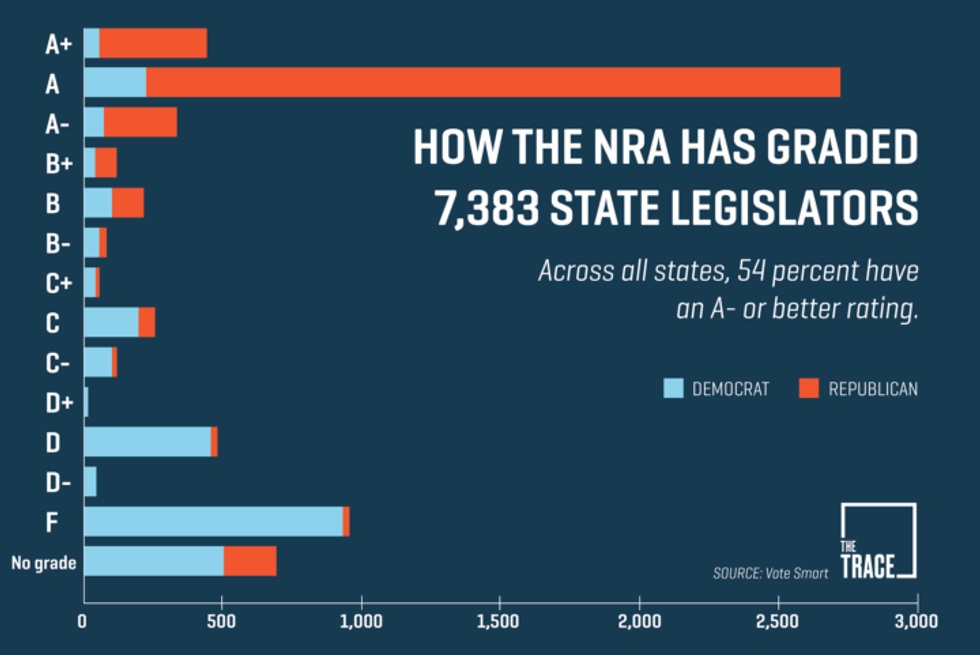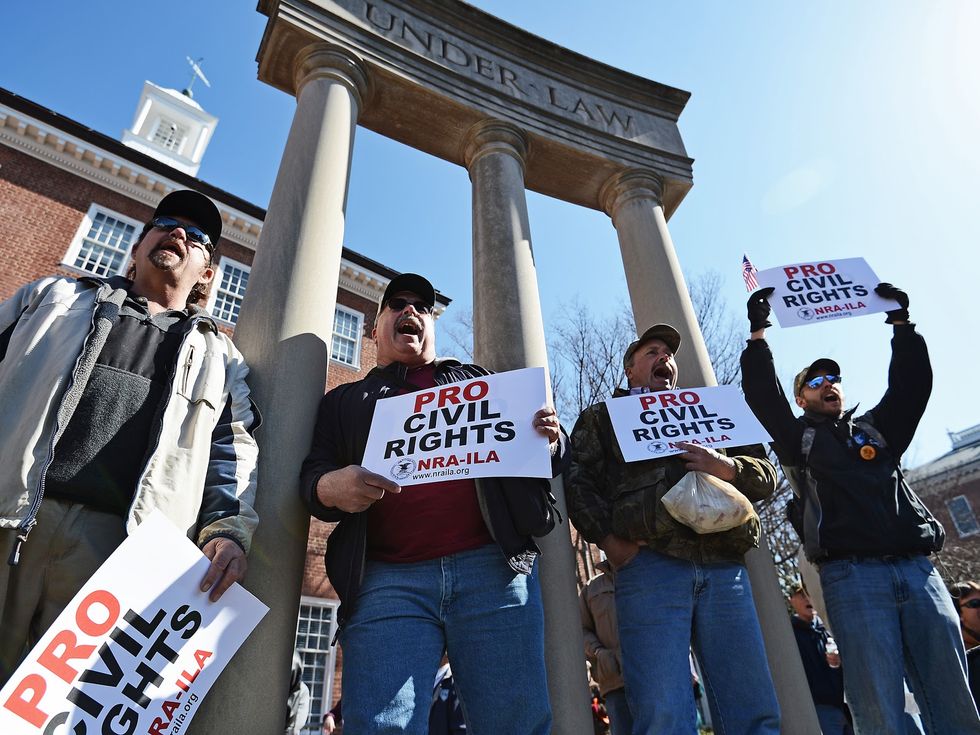It’s no secret that the N.R.A. (National Rifle Association) has extensive ties into the political field. The group’s main focus is upholding the second amendment, promoting both the use of guns and societal acceptance of gun culture. Taking advantage of their massive base (which they claim to include five million followers, although some evidence is contradictory), they have gained significant lee-way in our political system.
The N.R.A. uses a system of “grading” to label lawmakers based on their history of voting. Politicians who earn higher grades have a constant record of voting in favor of pro-gun issues. Those who get “A” or “A+” ratings tend to do better in elections and earn more votes from conservatives compared to those who score lower.
Republicans have (to no surprise) have scored significantly higher than Democrats.
Use of this scale is a relatively simple way for the N.R.A. to relate to its members which legislators are “good” and “bad” for gun owners. In choosing to use this rating it oversimplifies the complexity of the gun debate. This grading system provides a tremendous amount of power for the N.R.A., as they personally decide which politicians should be voted for, and which who should not. As the group influences so many voters, its decisions are crucial.
The N.R.A. makes most of its money from membership dues and donations from nearly 30,000 members, 90% of them giving less than $200 a year. Individuals donations pad the balance significantly, contributing to a total of $22 million in 2014 alone. Many of the donors, when asked why they donated, said that they did so as to make sure their individual rights would not be taken away from them. Contributing, in this way, is an investment. Trusting the N.R.A. to distribute their money ensures the belief that gun advocates will be voted into office.
The N.R.A. not only influences elections through the grading system but also does so through the use of campaign funding. According to the Los Angeles Times, “From 2010 through 2018 thus far, the organization donated $111 million to political campaigns of federal candidates.” One of such people that recently came under fire was Florida Senator Marco Rubio when he was asked a question by Cameron Kasky, a 17-year old survivor of the Parkland school shooting, on whether he would continue to accept donations from the N.R.A.. Rubio said he would, even going on to state, “I will always accept help from anyone who agrees with my agenda.”
Hearing this is extremely problematic. This supports the argument that money directly influences the decision to either support or reject policies. Politicians will act a certain way in order to keep their funding active, even if doing so at a cost to the American people. And the donations received by these types of politicians, either directly or indirectly, are not small. The New York Daily News reported Marco Rubio having accepted “$90,205 in campaign donations from gun rights groups during the 2015-2016 campaign cycle and received an “A+” grade from the NRA. Rubio has received $3,303,355 over the course of his career as an elected official”.
The N.R.A. is so influential because, in capitalizing on their donorship, they can lobby for candidates that support their position, in turn influencing the stances they take. It is through the extensive use of investment, advertisement, and grading that politicians are encouraged to take on the pro-gun agenda.












































